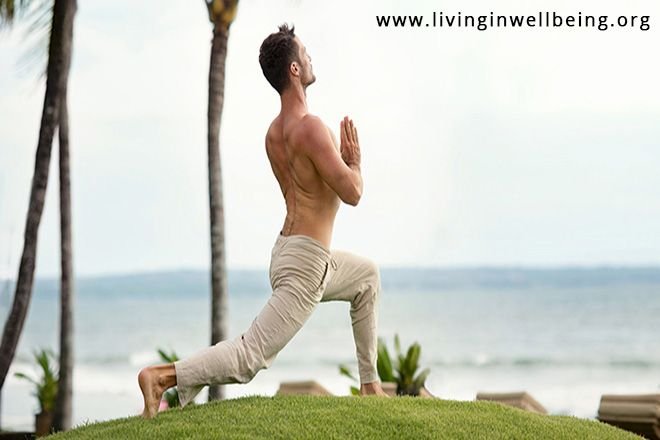
I was nearly into the second week of my stay at the drug and alcohol rehab center that undoubtedly saved my life when I first heard the word “yoga” mentioned. Two guys, all tattoos and watchful eyes, we're talking about the class they’d just come out of. As I stumbled past them (I was still being medicated heavily), I caught one of them say, “F--k, man, so that’s what peace is. I like that yoga candy. I’ll take that over the pipe any day.”
Rehab can be a very surreal place. I was still going through the medicated detox, allowed only out of my room under supervision, and two guys I’d have kept well clear of out on the street (unless I needed to buy something from them, of course) were discussing the spiritual benefits of their daily yoga practice. Surreal with a capital “S”.
Apparently, back in 2014, around 1 in 12 adults in the U.S. had a substance abuse problem. I’m no medical expert or Harvard-qualified statistician, but I’d say a fair few of those are dead now. Drug addiction and alcoholism can be very creative when thinking about ways to end your life. It was starting to get very creative with me, I can tell you.
All of that was a decade ago. Hard to believe I made it, but I did. Nearly a decade of living a clean and sober life. I’m grateful for many things now - for my Mom and Dad who, apart from everything else, finally had enough and threw me in their rehab-bound car, for the center itself who got me clean and gave me the tools to remain that way, and for everything that’s new and good. Back then, yoga was new and good. It still is.
Talking about Harvard, assistant professor there and director of the Kundalini Research Institute, Sat Bir Khalsa, describes yoga and its relationship to addiction like this: “When people take substances, they're seeking a certain experience, whether it's escapist or transcendental or just wanting a different psychological state, to get away from whatever is making them unhappy. Yoga will definitely change our conciseness and ways of thinking and will change our ways of life, so that we will have a positive and happy outcome in our life.”
Yoga candy. Virtually all drug and alcohol rehabilitation centers across the U.S. now either have in-house yoga therapy classes or provide their patients with access to them. Because of the complete nature of yoga, treating the mind, the body, and the soul all at the same time, its benefits are now widely recognized by the medical and addiction treatment community. And this, dear reader, is how it works:
Yoga & The Body
“I’d have given you, maybe, three more months. At the rate you were going. No more.”
One of the resident rehab center physicians looking after I pulled no pùnches. I was glad of it - it’s what I needed to hear, once, of course, I was clean. Addicts only care about the next hit, the next fix. A healthy body isn’t high on their agenda.
Addiction will make you deny yourself the basic nutrition you need. It will certainly harm your vital organs. It’ll do a whole host of other stuff, given the chance. As I said, it’s very creative when it wants to be.
Yoga is a pure and simple way of healing your body. By regular daily practice, it will settle the chaos your body is experiencing, and its benefits can be felt very quickly. Once your body is fitter and healthier, your mind will follow. As it says in the AA’s Big Book, "In our belief, any picture of the alcoholic which leaves out [the] physical factor is incomplete."
We live as holistic beings, and there exist deep connections between our physical body, mind, emotions, and spirit. Through yoga, you heal not only the body, but you strengthen those connections, making the recovery process one where you are in control.
Yoga: Pain & Discomfort
Painful emotions, thoughts and feelings you simply can’t deal with, usually lie at the heart of an addict’s disease. That need to try to cope, even escape such emotions is what drives their substance abuse.
My body was a mess. Pain and discomfort? At the beginning, it felt like every fiber within me was screaming, screaming for it to stop, screaming for a little something to make it better. Yoga teaches us to live in the present and to accept such pain and discomfort. My first few classes were uncomfortable, to say the least, and some of the postures seemed to want more than I had to give.
However, through being present, by breathing through the physical discomfort, it became manageable - a vital lesson for recovering addicts when it comes to dealing with the painful emotions that brought us here in the first place.
Yoga & The Balance of The Mind
Our minds are like a chemical laboratory, producing both good and bad. Yoga has been shown to relieve such demons as stress, anxiety, and depression - all of which are pretty nailed on to be side-effects of alcohol withdrawal.
Yoga stimulates the production of good chemicals, and recent studies reveal that it is particularly important for increasing your level of gamma-aminobutyric acid (GABA) in the brain, a naturally occurring one that manages our anxiety and stress levels.
Furthermore, when you compliment yoga with the practice of mindfulness (heightening a person’s awareness through meditation), you become far more in control of the emotions, thoughts and feelings which affect you negatively.
You certainly become stronger mentally - vital for continuing a clean and sober life.
Yoga & Connection
The word “yoga” is a Sanskrit word, which means “to yoke” or “to connect.” Not only does this mean the obvious connection established between body and mind during the practice of yoga, but also the connection between the individual soul (“Atman” in Sanskrit) and the collective so the universe, or God (“Brahman”).
Regardless of your own spiritual or religious beliefs, the premise is this:
Yoga connects us with something beyond ourselves.
Me? I don’t believe in a God, but I do believe in a higher power, something far greater than myself. I go to NA and AA meetings, too - the 11th step of the 12 steps of AA explains the need to connect with, and surrender to, such a higher power. It was yoga who helped me get to that point in my life.
Healing The Root
The roots of addiction, wherever they have originally sprung from, grow in the soil of emotional or psychological pain. Yoga heals those roots, through its benefits of strengthening our bodies, allowing us to deal with pain and discomfort, balancing the mind, and connecting us with absolutely everything around us.
Are you considering if yoga could be the help you need to follow the path of recovery from alcohol and drug addiction? Would you like to share your thoughts and comments with other readers? Please, do leave us a message below. All are very much appreciated.












